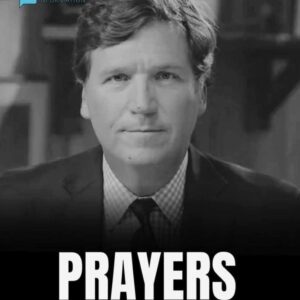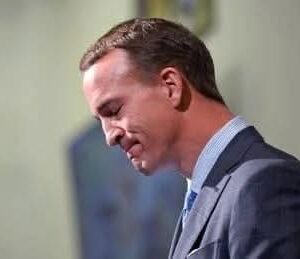In a recent television segment, Fox News host Tucker Carlson and comedian-commentator Jimmy Dore dissected what they describe as the “untold story” of President Barack Obama’s legacy. Through their conversation, they highlighted several key instances where Obama’s rhetoric during his presidency didn’t align with the reality of his policies. The discussion revolves around broken campaign promises, close ties to Wall Street, and the lasting consequences of his administration’s economic and foreign policies. This article unpacks their key claims, evaluates the supporting evidence, and places these critiques in the broader context of Obama’s presidency.
1. Broken Promises and Unfulfilled Pledges
1.1 Guantánamo Bay and Deficit Reduction
One of President Obama’s most iconic promises during the 2008 campaign was his pledge to close the Guantánamo Bay detention facility, a holdover from the Bush administration that became symbolic of the U.S. government’s controversial tactics in the War on Terror. Obama promised to close Guantánamo within a year of taking office, but by the end of his second term, the prison remained operational. Dozens of detainees remained at the facility, and despite significant political pressure, Obama’s administration failed to fulfill this key pledge. According to Politico, the Obama administration’s inability to close the facility was due to a combination of political opposition, logistical difficulties, and the continued presence of detainees considered national security risks.
Similarly, Obama pledged to reduce the national deficit and bring down the country’s ballooning debt. The promise to reduce the deficit was central to his economic platform. However, as highlighted by The Washington Post, despite Obama’s efforts, the national debt grew significantly during his presidency, and deficit reduction goals fell short. While Obama did pass the Budget Control Act and the American Recovery and Reinvestment Act to stimulate economic recovery, the long-term fiscal health of the nation remained a challenge by the time he left office.
1.2 Wall Street Accountability
Perhaps one of the most glaring contradictions during Obama’s presidency was his stance on Wall Street. Throughout the 2008 campaign, Obama criticized the “fat-cats” on Wall Street, promising to hold financial executives accountable for their role in causing the financial crash. Despite this rhetoric, once in office, Obama and his administration opted not to pursue major criminal prosecutions against banks and financial executives. This failure to act on Wall Street’s misconduct drew criticism from numerous political commentators, including Dore and Carlson, who argue that Obama’s inaction was a “profound failure of justice,” as reported by The Guardian. Critics contend that Obama’s ties to Wall Street—particularly the appointment of former Wall Street executives to key positions in his administration—led to the lack of meaningful reforms.
Dore and Carlson reprise these arguments, asserting that Obama’s reluctance to challenge Wall Street interests ultimately undermined his populist platform. They argue that this failure to hold financial institutions accountable marked a major discrepancy between Obama’s campaign promises and his actions in office.
2. Influence of Wall Street on Policy
2.1 Dodd-Frank and Its Limits
In response to the 2008 financial crisis, the Obama administration passed the Dodd-Frank Wall Street Reform and Consumer Protection Act in 2010. This landmark piece of legislation was designed to curb risky banking practices, protect consumers, and prevent another financial meltdown. While it was initially celebrated as a victory for financial regulation, critics argue that over time, the provisions of Dodd-Frank were watered down, and key aspects of the law failed to fully prevent a return to pre-crisis levels of risk-taking in the financial sector. Anadolu Ajansı reported that many of the original regulatory measures were eroded, and some major banks returned to the same risky behaviors that led to the crash. Carlson and Dore emphasize that Obama’s economic team, which included several former Wall Street insiders, was unlikely to take on the financial sector in any meaningful way, allowing for the gradual dismantling of the reforms.
2.2 Post-Presidential Paydays
After leaving the White House, Obama’s financial dealings have raised eyebrows among his critics. He accepted a $400,000 speaking fee from the investment bank Cantor Fitzgerald, and later secured a $65 million book deal. Critics like Bernie Sanders and Elizabeth Warren called the Wall Street speech “distasteful,” arguing it contradicted the reforms Obama had championed during his presidency. Time covered these criticisms, highlighting how Obama’s post-presidential financial activities seemed to undermine his earlier populist calls for financial reform and accountability. Dore and Carlson point to these post-presidential earnings as evidence that Obama never fully severed his ties with the financial sector, and that his promises to regulate Wall Street were hollow.





